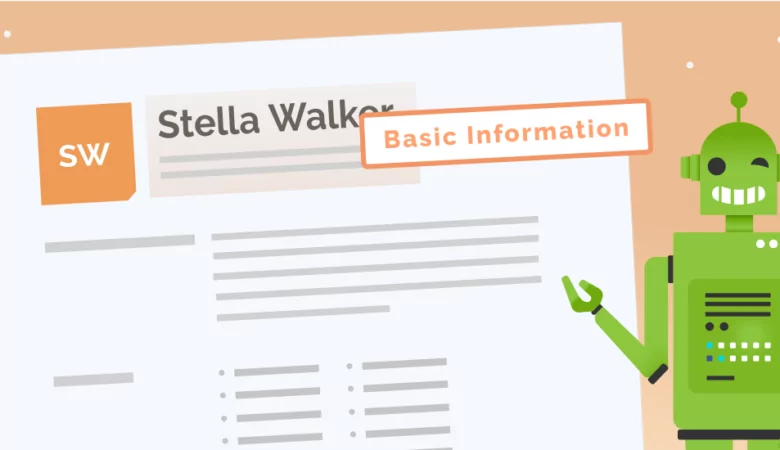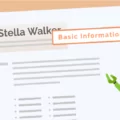Copywriters need to be able to write high-quality content. Here’s how you can write the perfect resume to apply for a copywriting job.

Stunning Copywriter Resume Examples for You to Use This Year
Copywriter Resume Examples
A stand-out copywriter doesn’t just need a good grasp of English. You also need to be proficient in the internet side of the industry, which includes information like search engine optimization (SEO), how to maximize conversions and general information for public relations. Your resume needs to show a hiring manager that you can deliver on these skills. Here’s how to do it most effectively.

What To Highlight in a Copywriter Resume
A copywriter needs to indicate full command of the English language. That means you must proofread your resume multiple times. If you make even a slight mistake, accidentally writing “exel” instead of “excel,” or leaving out a word, a hiring manager may assume that you don’t have a great understanding of English, and that can derail even the best resume. Put your copy editing skills to work on your resume.
Structure of a Copywriter Resume
Your first step should be to choose the right resume format. There are three common resume formats: chronological, functional and combination. Each resume format highlights something different about your resume. Once you’ve settled on a resume format, you can move on to writing the rest of your resume by adding your information to the following resume sections:
Header
Your header is where you will put your general contact information. For example, you can include your phone number, email address, location and professional social media links, like your LinkedIn profile.
Resume summary or objective
The first piece of content in your resume is a 2-3 sentence paragraph at the top of the resume. If you have lots of experience, this should be a resume summary that summarizes your experience and achievements. If you have less experience, write a resume objective that focuses on your skills, education and career goals.
Skills
Copywriting skills can encompass several different elements so be sure to include both soft skills and hard skills in your skills section. Here are some bullet points to consider adding to your resume:
- In-house writing
- Landing page creation
- Press releases
- Referencing case studies
- General content creation
- Content strategy
- Digital marketing
- Email marketing
- Keyword research
- Basic Photoshop knowledge
- Problem-solving
- Project management
- Understanding the target audience
- Time management
- Ability to write copy in a short period of time
- High WPM
- Social media and email campaigns
Remember to list specific skills that you’re good at, especially those that the hiring manager specifically mentioned in the job description.
Work history
Your work experience section will include up to 10 years of experience in any job where you regularly wrote copy. If you’re applying to be a senior copywriter, you’ll need to include more experience in your professional resume. Internships and volunteer work also suffice as work experience.
Education
Education can vary for a copywriter, anywhere from just certifications to an associate degree or a bachelor’s degree in professional writing. Include any professional education you have in this section.
Do’s and Don’ts for a Copywriter Resume
Follow these tips to create a professional copywriter resume:
Do:
- Have a friend review your resume. Sometimes, having an extra set of eyes can help you catch any typos.
- Indicate your writing skills in a specific area or industry. Are you the best at technical writing? Do you excel in copying a brand voice? Is product content your specialty? These are all important areas to showcase.
- Use specific metrics whenever possible. If you were able to significantly improve a company’s profits, for example, add that to your resume.
Don’t:
- Simply list job titles with no job duties. There are many different types of work that a copywriter can do, so it’s important to show a hiring manager exactly what skills you’ve used.
- Avoid mentioning a college degree because it’s not a degree in writing. All college degrees require a significant amount of writing, so all degrees can be beneficial.
- List all basic skills on your resume. It’s better to be specific. A copywriter should know basic Microsoft Word skills, for example, so adding that to your resume just looks like you’re padding it.
FAQ: Copywriter Resumes
A cover letter is always important for any application. It allows you to talk directly to the hiring manager and it can also give your job application a more human touch, allowing the recruiter to understand more about you. The ResumeNerd cover letter builder also makes it super easy to write your cover letter.
Not everyone has lots of experience in copywriting before they enter the field, especially if they’re looking for an entry-level job. However, if you don’t have much professional experience, on your resume you can include any type of writing experience from previous jobs. Also feature academic or internship experience where you wrote regularly.
Every time you apply for a new job, it’s important that you change your resume to target the job that you’re applying for. You see, every job will have different requirements. Read through the job description and look for keywords like specific skills and experiences the recruiter wants from their candidate. Then, add those keywords to your resume and cover letter.








